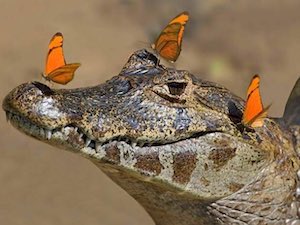The post Why Partisanship Is <span class="dewidow">Worse Now</span> appeared first on Roosevelt Institute.
Reading
The government has arrested a suspect but regularly exaggerates the damage from the unauthorized sharing of secret documents.
The post In Pentagon Leak, the Problem Is What’s Classified, Not What Gets Out appeared first on The Intercept.
We are in the midst of the largest wave of industrial action in decades. Workers are addressing the cost-of-living crisis through the pay packet. And poll after poll demonstrates widespread public support for nurses, teachers, junior doctors and other workers taking strike action despite a concerted media effort to undermine them. In response to the […]
Feinstein, who was hospitalized in early March for shingles and has remained in her San Francisco home since March 7, has missed 60 votes of the 82 taken in the Senate in 2023…
I was standing on the street in the rain, speaking to a few dozen people, without a sound system. Remarkably this is captured brilliantly just on an inexpensive phone camera, and my words have already reached several thousand. Good people cannot just give up and do nothing. We have to continue to try to do […]
The post Bearing Witness for Julian appeared first on Craig Murray.
by Gregory M. Mikkelson
An important recent article on resource use and its environmental impacts starts from the premise that “the planet’s resources and ecosystems are a commons, and… all people are entitled to an equal, sustainable share.” Alas, the world today deviates wildly from this norm. Indeed, inequality—of resource use, but also of income and wealth—is extremely high today and is actually worsened by economic growth. What’s more, it is bad for our politics,
The post A Steady State Sustains All Boats appeared first on Center for the Advancement of the Steady State Economy.
After more than 20 years of losing wars, recruiting for the U.S. Army is now officially a mess. Last year, that service fell short of its goal by 15,000 recruits, or a quarter of its target. Despite reports of better numbers in the first months of this year, Army officials doubt they will achieve their objective this time around either. The commanding general at Fort Jackson, the South Carolina facility that provides basic training to 50% of all new members of the Army, called the recruiting command’s task the hardest since the all-volunteer military was launched in 1973. The Army’s leaders were alarmed enough to make available up to $1.2 billion for recruitment incentives and related initiatives. Those incentives include enlistment bonuses of up to $50,000... Read more

Hey, from now on, I'll be totally inactive on Twitter.
I'll leave my account 'as is' with a link to this article in the most recent Twitt.
I'll not close or delete my account to prevent bad intentioned users to recreate fake accounts in my name and impersonate me. But that's all. Consider my account now as a ghost, only around to archive what was done in the past.
I already started to unfollow many accounts around January, I archived everything, deleted DMs, and over the last month I only connected to it to copy/paste news from my blog. So, I already was a zombie on the platform.
Dear TikTok Support,
I don’t know if this is the right place for this or if TikTok has a specific form for complaints regarding user-submitted effects, but I have a big issue with the currently trending old age filter.
After seeing my For You page flooded with fun images of young couples suddenly transformed into scraggly-skinned septuagenarians, I decided to join the party by uploading a photo of my wife Connie and me.
But instead of a goofy memento of how we might look after a lifetime of living, laughing, and loving, the filter shows my smiling wife standing in front of my freshly dug grave. And with her is an unknown older guy who clearly has his hand on the small of her back.
Like, what?
Not only that, but Connie has barely aged in the photo. She’s got a couple of extra laugh lines, and that’s it. Is the filter implying I’ll be dead in four to ten years and that she’ll be dating before my body is cold?
What is currently taking place in Palestine is not yet a religious war, but some Israeli officials and political parties are keen on turning it into one.
The post Quest for Religious War: How Israel is Unifying Arabs and Muslims around Palestine appeared first on MintPress News.
Exclusive Twitter Files emails and publicly available documents show Mehdi Hasan's accusation is false.
The post Lee Fang: MSNBC’s Mehdi Hasan Gets Basic Facts Wrong on DHS Content Moderation Partnership appeared first on scheerpost.com.
By David Swanson / World BEYOND War The New York Times routinely tells bigger lies than the clumsy nonsense it published about weapons in Iraq. Here’s an example. This package of lies is called “Liberals Have a Blind Spot on Defense” but mentions nothing related to defense. It simply pretends that militarism is defensive by applying that word […]
The post New York Times Is Now Telling Bigger Lies Than Iraq WMDs and More Effectively appeared first on scheerpost.com.
